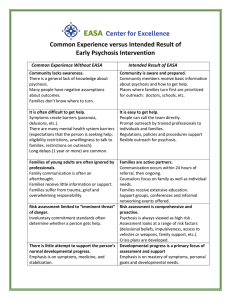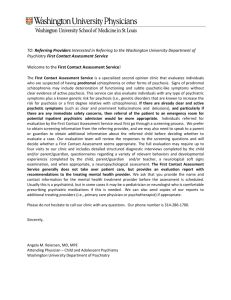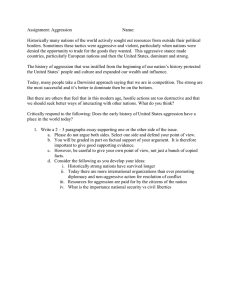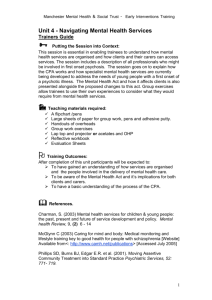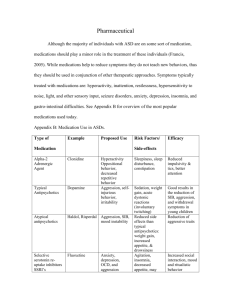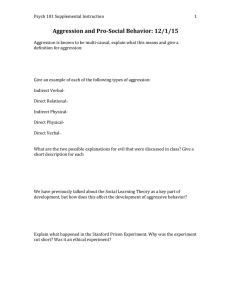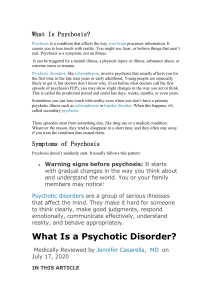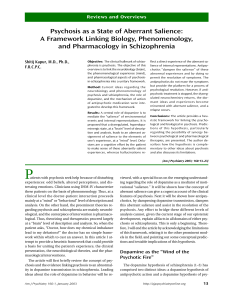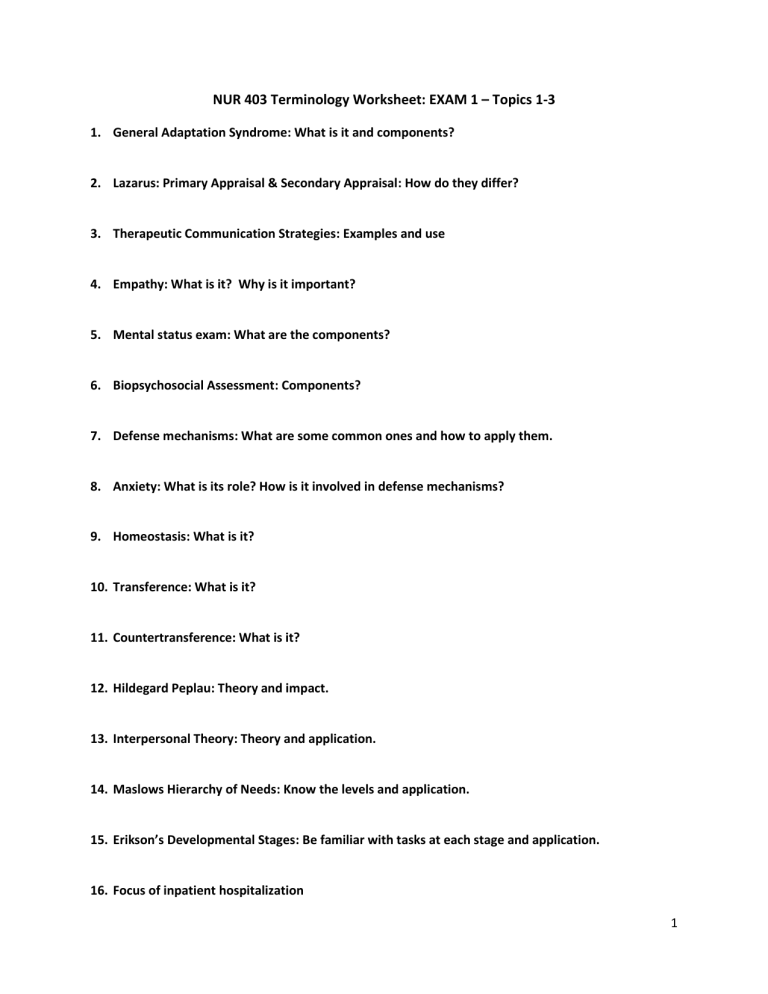
NUR 403 Terminology Worksheet: EXAM 1 – Topics 1-3 1. General Adaptation Syndrome: What is it and components? 2. Lazarus: Primary Appraisal & Secondary Appraisal: How do they differ? 3. Therapeutic Communication Strategies: Examples and use 4. Empathy: What is it? Why is it important? 5. Mental status exam: What are the components? 6. Biopsychosocial Assessment: Components? 7. Defense mechanisms: What are some common ones and how to apply them. 8. Anxiety: What is its role? How is it involved in defense mechanisms? 9. Homeostasis: What is it? 10. Transference: What is it? 11. Countertransference: What is it? 12. Hildegard Peplau: Theory and impact. 13. Interpersonal Theory: Theory and application. 14. Maslows Hierarchy of Needs: Know the levels and application. 15. Erikson’s Developmental Stages: Be familiar with tasks at each stage and application. 16. Focus of inpatient hospitalization 1 17. Stigma: What is the impact? 18. Advocacy: Nurses role. 19. Ethical Principles: Autonomy, Veracity, Beneficence, Non-maleficence, Justice) 20. Right to least restrictive environment: What does this mean? 21. Competence in mental health 22. Tort Law 23. Involuntary Status 24. Aggression & Cycle of Aggression 25. Priority Nursing Interventions: Potential Aggression 26. Self-Awareness Model 27. Debriefing 28. Therapeutic Milieu 29. Neuroanatomy (Limbic System, Hippocampus, Amygdala, Limbic midbrain nuclei, Frontal Lobe) 30. Executive functioning 31. Neuroplasticity: What is it and implications? 32. Neurotransmitters: Know the basic ones involved in mental health and their roles. 33. Synapses: Why relevant in mental health? 34. Receptors: Why relevant in mental health? 2 35. Metabolism & excretion considerations in psychopharmacology 36. DSM-V Diagnostic Criteria Schizophrenia 37. Phases of Symptom Development (Schizophrenia) 38. Positive symptoms of Psychosis 39. Negative symptoms of Psychosis 40. Priority Nursing Interventions: Psychosis and related disorders 41. Disordered Water Balance: Why is it relevant? 42. First Generation Antipsychotics: General considerations. 43. Second Generation Antipsychotics: General considerations. 44. Extrapyramidal Symptoms (Dystonic Reaction, Akathisia, Parkinsonism) 45. Tardive Dyskinesia 46. Neuroleptic Malignant Syndrome 47. Anticholinergic Crisis 48. Agranulocytosis: What is it? Why do you need to know about it? 49. Anticholinergic Medication: Why relevant? 50. Beta Blockers: Why relevant? 3
